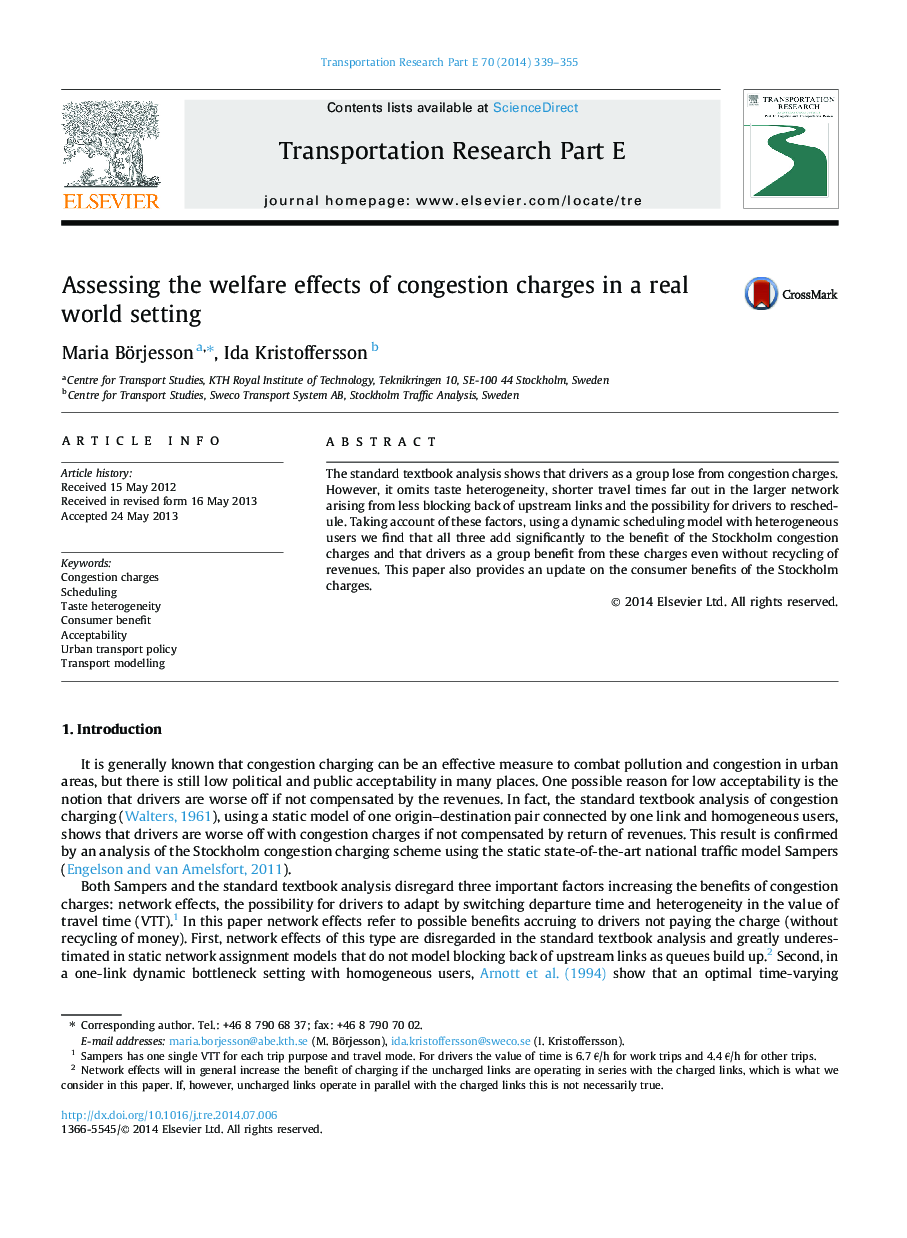| Article ID | Journal | Published Year | Pages | File Type |
|---|---|---|---|---|
| 1023282 | Transportation Research Part E: Logistics and Transportation Review | 2014 | 17 Pages |
•The standard analysis shows that drivers as a group lose from congestion charges.•But omits taste variation, shorter travel times in upstream links and rescheduling.•We assess the size of these factors for the Stockholm charges using a dynamic model.•All factors, primarily the first two, add significantly to the welfare gain.•When taking these factors into account drivers as a group benefit from the charges.
The standard textbook analysis shows that drivers as a group lose from congestion charges. However, it omits taste heterogeneity, shorter travel times far out in the larger network arising from less blocking back of upstream links and the possibility for drivers to reschedule. Taking account of these factors, using a dynamic scheduling model with heterogeneous users we find that all three add significantly to the benefit of the Stockholm congestion charges and that drivers as a group benefit from these charges even without recycling of revenues. This paper also provides an update on the consumer benefits of the Stockholm charges.
